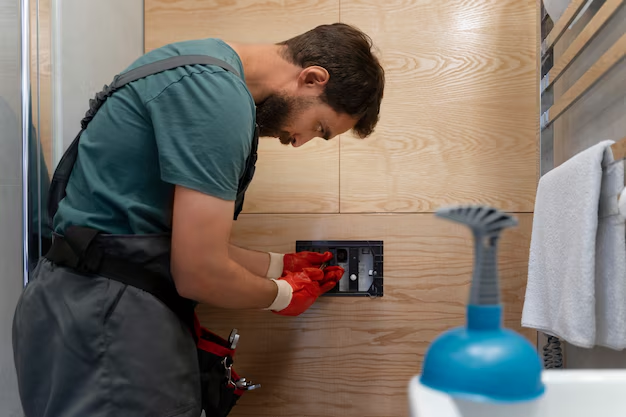What's Causing Your Refrigerator to Leak Water?
When you notice a pool of water underneath your refrigerator, it can quickly turn from a mild concern to a pressing problem. But you’re not alone – refrigerator leaks are a common issue that many homeowners face. Want to know why your refrigerator might be leaking and how you can address it? Let’s explore the potential causes and solutions, empowering you with the knowledge to tackle this inconvenience with confidence.
Common Causes of Refrigerator Water Leaks
1. Clogged Defrost Drain
The defrost drain plays a crucial role in ensuring excess water from the defrost cycle is efficiently channeled away from the fridge. Over time, debris like food particles or ice can block this drain, leading to water buildup and leaks.
Solution:
- Defrost the drain manually. You can do this by removing visible ice and flushing it with warm water using a turkey baster or a small funnel.
- Regularly clean the drain to prevent future clogs.
2. Improperly Sealed Door Gaskets
If the door gaskets (the rubber seals around your fridge doors) are damaged or dirty, they might not form a proper seal. This can cause warm air to enter the fridge, leading to excess moisture which eventually condenses and leaks.
Solution:
- Inspect the door gaskets for any tears or wear. Replace if necessary.
- Clean the gaskets with soap and water to ensure a tight seal is maintained.
3. Full or Faulty Drain Pan
The drain pan is designed to collect condensate water from the freezer's defrost drain. A crack in the pan or overfilling can cause leaks.
Solution:
- Check the drain pan for cracks. Replace if damaged.
- For overfilled pans, ensure proper airflow around the fridge to aid evaporation and consider removing excess water manually.
4. Water Filter Issues
A refrigerator's water filter might cause leaks if it’s not seated correctly or is clogged. This is a common issue, especially if the filter has not been replaced regularly.
Solution:
- Check the filter's installation. Ensure it’s aligned and seated properly.
- Replace the filter according to the manufacturer's instructions, typically every 6 months.
5. Ice Maker or Water Dispenser Problems
If equipped with an ice maker or water dispenser, leaking may result from faulty connections to the water line or a malfunctioning component.
Solution:
- Examine the water lines for any damage or loose connections.
- If leaks persist, there could be a more complex fault with the ice maker, requiring professional assessment.
Additional Factors to Consider
Condensation Build-up
Excessive condensation within the fridge can drip and create leaks. This often happens if the humidity setting is too high or if the doors are frequently opened in humid environments.
Solution:
- Adjust the humidity control settings.
- Minimize door opening during high humidity days.
Incorrect Fridge Leveling
Refrigerators need to be leveled to function as intended. An uneven fridge can prevent proper drainage, leading to water pooling.
Solution:
- Use a level tool to check the fridge’s position. Adjust the legs if necessary to ensure an even stance.
Regular Maintenance Practices for Prevention
Preventative maintenance can save you from the headache of dealing with water leaks. Here are key habits to incorporate:
- Schedule regular cleaning of the defrost drain and door gaskets.
- Inspect the drip pan regularly for cracks or excessive water.
- Replace water filters on time as per manufacturer recommendations.
- Conduct periodic inspections of the water line connections if your fridge is connected to a water supply.
🚀 Quick Reference Summary
Here's a simple checklist to help resolve and prevent your refrigerator water leaks:
- 🔍 Check drains: Look for and remove any obstructions in the defrost drain.
- 🧹 Clean gaskets: Ensure door seals are clean and undamaged.
- 🔧 Inspect and replace parts: Examine the drain pan, water line connections, and replace faulty components.
- 📝 Maintain regularly: Keep up with routine cleaning and inspections.
- ⚙️ Level your appliance: Ensure the refrigerator is leveled to enable proper drainage.
Knowing When to Call a Professional
While many leaks can be addressed with simple troubleshooting, some issues might require expert attention. If:
- The leak persists despite troubleshooting,
- There’s visible damage to internal refrigerator components,
- Or you hear unusual sounds indicating mechanical faults,
It’s wise to reach out for a professional assessment. A qualified technician can ensure your appliance is operating safely and efficiently.
In summary, understanding the root causes of water leaks in your refrigerator empowers you to take proactive steps in maintaining your appliance. Armed with these insights, your next task is a confident stride toward a dryer kitchen floor and a fully functional refrigerator. Happy troubleshooting!

